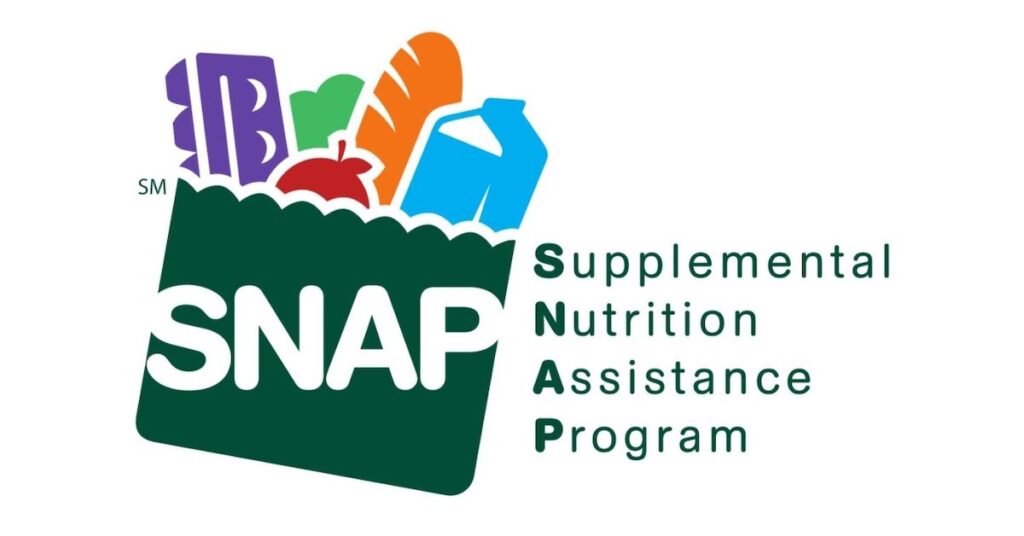A GOP-sponsored bill implementing several tighter rules for various types of public assistance, including food stamps and Medicaid, is set to be heard Thursday in the Kentucky House of Representatives Health and Family Services committee. State officials and some advocates worry the legislation could harm many low-income Kentuckians receiving assistance with food, healthcare and more.
Sponsored by Republican House Speaker David Osborne and Republican Speaker Pro Tempore David Meade, House Bill 7 would change how low-income Kentuckians qualify for Medicaid and the Supplemental Food Assistance Program, better known as SNAP or food stamps. The legislation would also put the Cabinet for Health and Family Service in charge of implementing these new regulations.

A Cabinet for Health and Family Services spokesperson in a statement said the “red tape” created by new regulations could overwhelm cabinet staff in charge of allocating SNAP and Medicaid benefits, with thousands of Kentuckians harmed who rely on assistance with food, childcare and healthcare.
“Safety net programs that help our most vulnerable residents would be impacted by devastating cuts, including the Women, Infant and Children program; Child Care Assistance Program payments; the Low Income Home Energy Assistance Program; state supplemental payments for the aged, blind and disabled, and more,” the cabinet spokesperson said.
A spokesperson for House Speaker David Osborne did not return requests for comment.
Among the provisions, the bill would eliminate what’s known as “broad-based categorical eligibility” which is what allows cabinet officials to qualify Kentuckians for SNAP benefits automatically if they qualify for other forms of public assistance, such as Temporary Assistance for Needy Families (TANF). Forty-four states including Kentucky implement broad-based categorical eligibility.
Without it, cabinet officials would have to determine the individual assets of each SNAP applicant to see if they qualify. That’s something that some researchers believe could be overly burdensome for state officials while also putting up bureaucratic hurdles for those needing SNAP benefits.
Dustin Pugel, a senior policy analyst with the left-leaning research group Kentucky Center for Economic Policy, said the regulations implemented in the bill could take the state back to “pre-1960s welfare reform in some ways.”
“All of these changes require a lot of administrative work and a huge burden on the state, both in terms of manpower but also in terms of funding,” Pugel said. “The result is that we will spend state dollars to send away the federal dollars that pay for things like food and medical assistance.”
Pugel is also worried about Kentuckians losing access to Medicaid when the federal state of emergency enacted due to the pandemic expires. States have received more federal funding for Medicaid programs during the pandemic with a requirement that recipients stay enrolled until the federal state of emergency ends. A report Wednesday from the Kaiser Family Foundation states millions of low-income Americans could lose Medicaid access once that state of emergency ends and state governments reevaluate the eligibility of recipients.
The federal government is giving states up to 12 months to go through their Medicaid rolls once the state of emergency ends. House Bill 7 would require the state to complete that transition in 60 days, Pugel said.
“It would happen incredibly rapidly. It would not give the state enough time,” Pugel said. “There’s just no way that they can turn around and hire all those people and train them to get ready for this.”
Overall, Pugel said there are about 544,000 Kentuckians with SNAP benefits and nearly 1.6 million Kentuckians with Medicaid.
The legislation also seeks to create a “Public Assistance Oversight and Advisory Committee” to provide oversight to all public assistance programs, with eight of the ten committee members appointed by the GOP-dominated General Assembly leadership.
The bill would also:
- States public assistance funds from electronic benefit transfer cards may only be used for food, clothing, housing, utilities, child care, transportation, medicine and medical supplies and explicitly not used for alcohol, tobacco products, vaping products, lottery tickets, tattoos, body piercings, casino gambling or used in an “establishment that provides adult-oriented entertainment in which performers disrobe or perform in an unclothed state.”
- Charges the Cabinet for Health and Family Services with investigating violations of individuals using EBT card funds for stated illegal purposes.
- Recommends to Kentuckians receiving SNAP benefits to use the 75% of the benefits for purchasing “healthy foods, including fresh fruits, fresh vegetables, and whole grains.”
- Require some able-bodied adults with dependents receiving Medicaid to participate at least 80 hours a month in a “community engagement” program. A federal judge in 2019 struck down former Republican Gov. Matt Bevin’s changes to the state’s Medicaid program that also included “community engagement” requirements.
- States that if an individual “traffics, sells, distributes, gives or otherwise transfers” an EBT card in an exchange, the individual could lose access to all public assistance due to a second violation.
The advocacy organization Kentucky Youth Advocates published a letter in early March calling the legislation a “mixed bag,” stating the bill had needed provisions – such as expanded Medicaid access for incarcerated individuals recovering from substance abuse – but also had “elements that are truly problematic for Kentucky families.”
Kentucky Youth Advocates Chief Policy Officer Mahak Kalra said one of the problematic proposals in the bill would end the Cabinet for Health and Family Services’ authority to grant “presumed eligibility” determinations for Medicaid.
Currently, the cabinet allows local medical practitioners, health departments and others in healthcare the authority to enroll some low-income Kentuckians in Medicaid through a simple application, allowing those individuals to receive Medicaid while a more complete Medicaid application is processed. That “presumed eligibility” authority would be transferred exclusively to Kentucky hospitals.
“Limiting that presumptive eligibility determination to only hospitals would significantly drive up costs for both the state and for families,” Kalra said.
Kalra said she believes the best way forward regarding the legislation is to assign a task force with various stakeholders to allow for more discussion and time on the deeper issues regarding public assistance instead of addressing it in this session.
“We know that safety net programs play a critical role in making sure families who are struggling can make ends meet by having food to eat, cover their basic family needs, access to critical supports and services that are needed to be healthy and thrive,” Karla said. “With the pandemic still looming, we need to provide the most support for our families that are in need.”
The bill is one of several to be discussed in the House Health and Family Services Committee at noon EST.
Liam Niemeyer is a reporter for the Ohio Valley Resource covering agriculture and infrastructure in Ohio, Kentucky and West Virginia and also serves Assistant News Director at WKMS. He has reported for public radio stations across the country from Appalachia to Alaska, most recently as a reporter for WOUB Public Media in Athens, Ohio. He is a recent alumnus of Ohio University and enjoys playing tenor saxophone in various jazz groups.






